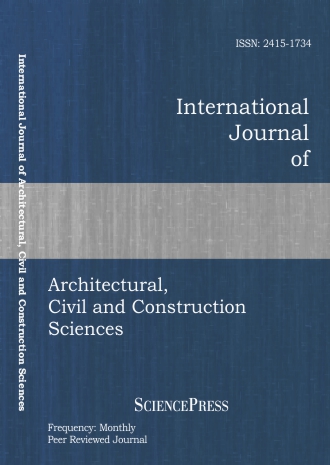
Scholarly
Volume:12, Issue: 4, 2018 Page No: 448 - 453
International Journal of Architectural, Civil and Construction Sciences
ISSN: 2415-1734
240 Downloads
Lateral Torsional Buckling Resistance of Trapezoidally Corrugated Web Girders
Due to the numerous advantages of steel corrugatedweb girders, its application field is growing for bridges as well as for
buildings. The global stability behavior of such girders is
significantly larger than those of conventional I-girders with flat web,
thus the application of the structural steel material can be
significantly reduced. Design codes and specifications do not provide
clear and complete rules or recommendations for the determination of
the lateral torsional buckling (LTB) resistance of corrugated web
girders. Therefore, the authors made a thorough investigation
regarding the LTB resistance of the corrugated web girders. Finite
element (FE) simulations have been performed to develop new
design formulas for the determination of the LTB resistance of
trapezoidally corrugated web girders. FE model is developed
considering geometrical and material nonlinear analysis using
equivalent geometric imperfections (GMNI analysis). The equivalent
geometric imperfections involve the initial geometric imperfections
and residual stresses coming from rolling, welding and flame cutting.
Imperfection sensitivity analysis was performed to determine the
necessary magnitudes regarding only the first eigenmodes shape
imperfections. By the help of the validated FE model, an extended
parametric study is carried out to investigate the LTB resistance for
different trapezoidal corrugation profiles. First, the critical moment of
a specific girder was calculated by FE model. The critical moments
from the FE calculations are compared to the previous analytical
calculation proposals. Then, nonlinear analysis was carried out to
determine the ultimate resistance. Due to the numerical
investigations, new proposals are developed for the determination of
the LTB resistance of trapezoidally corrugated web girders through a
modification factor on the design method related to the conventional
flat web girders.
References:
[1] A. Rácz Käferné, „Lateral-torsional buckling resistance of trapezoidally